The “Eleventh†holiday that was just past was originally a peak season for home appliance manufacturers. But for Japanese household electrical appliance companies, it is a tragic "winter." Relevant experts believe that the decline of Japanese household electrical appliances is not an emergency event. Its strategy is self-styled, technology is lacking in innovation, and the lack of consumer experience has made recession inevitable.
First, the Diaoyu Islands incident has added to the Japanese system "I will not choose Sharp TV, buy nothing and not buy Japanese goods." A consumer said in an appliance store. The Diaoyu Island incident did allow some domestic consumers to resist Japanese goods. Despite the "Eleventh" period, various home appliance stores and Japanese manufacturers launched a large number of promotional activities, but still failed to save the dangous ending of Japanese household appliances.
Despite the peak season for home appliance sales, sales areas such as Japanese color TVs, refrigerators, and air conditioners are still almost "vacuum." From the point of view of consumer concern, it is completely impossible to compare with Korean household appliances and home appliances. One surnamed Zhang said that consumers did not choose Japanese household electrical appliances. The main reason is that Japanese brands generally have high prices and poor cost performance, and they have not found any obvious advantages in quality compared with domestic and Korean products.
By observing the comparison of customer consultation with each brand within 10 minutes, consumers are more concerned with domestic brands such as TCL and Hisense in TV sets. On average, these brands have one customer consultation per minute; Korean-based Samsung and LG are also very hot; there are 5-7 consumers in 10 minutes; Japanese companies are almost unattended and observed by reporters for 10 minutes. Within the Toshiba TV sales area, several consumers passed through the Toshiba TV sales area. They simply looked at the brand and passed it directly. Their sales staff were not in the sales area. A domestic brand TV salesman told reporters that due to the impact of the Diaoyu Islands incident, Japanese TV sales have fallen far short of domestic brands.
Experts pointed out that the occurrence of the Diaoyu Island incident had hurt the feelings of domestic consumers and had a negative impact on the sales of Japanese household electrical appliances, accelerating the decline of Japanese household electrical appliance enterprises to some extent. A sales manager of a home appliance store in Beijing said that although the proportion of users affected by the Diaoyu Islands incident was not high, it had a greater impact on the sales of Japanese household appliances. According to the sales manager, the domestic brand TCL TV sold 780 units a day, while Sharp only sold 12 units.
Liu Lijun, chairman of the First Video Group's Board of Directors, said that due to the impact of the Diaoyu Islands incident, many people boycott Japanese brands are completely out of the heart. This mentality of domestic consumers may be difficult to eliminate for a short time. Experts said that last year, the Japanese TV set makers collectively set a new record of losses. Sharp, Sony, and Panasonic’s 2011 financial statements disclosed total losses of nearly 20 billion U.S. dollars. The Diaoyu Island incident even worsened Japanese companies.
Second, Japanese household electrical appliances are being discarded by consumers. The statistics of the recent arrival of Ovi Consulting show that Japanese household electrical appliances are gradually being abandoned by consumers. From July 2011 to July this year, the overall decline was very significant. Sales of Sharp LCD TVs fell to 3.4%, and Panasonic’s share in the plasma TV market dropped from 23.9% to 11.2%.
It is understood that the majority of Japan’s corporate profits are mainly from overseas markets. Among them, the Chinese market is an important source of profit for Japanese companies. With the decline of product competitiveness, Japanese household appliances have been shrinking year by year in the Chinese market and have entered the final journey phase. According to industry insiders, if Japanese household electrical appliance manufacturers do not reflect again, make some major changes and innovations. The future will suffer or be eliminated by the market or acquired by peers.
In fact, the decline in Japanese home appliances is not an emergency situation. Japan’s home appliance giant Sharp had a decline in net profit as early as 2007’s earnings, and then the downward trend was out of control. In 2011, its net profit loss was as high as 4.66 billion U.S. dollars, setting a record for the company's biggest loss. Forced layoff plans. At the same time, Japanese companies such as Panasonic were not spared, and they all set a huge loss record.
Luo Qingqi, a senior director of Pare Consultancy Co., Ltd., said: “Even without the impact of the 'Diaoyu Island Incident', Japanese household appliances could not escape the decline in market share, which is caused by the environment.†With the rapid expansion of the domestic household appliance industry, domestic companies basically The cost structure of household appliances was controlled. In this respect, Japanese Korean household appliance companies have no advantage.
"Now, the number of people buying Japanese household appliances is small. I don't know which day I will withdraw from the market. If the machine is damaged after I purchase it, I am afraid I can't even find a place to repair it." Mr. Yang, who lives in Haidian District, said that he would not buy Japanese household electrical appliances. . Consumers who are in line with Mr. Yang’s idea are actually not in the minority. Once the company’s sales are poor, its after-sales service will inevitably be implicated.
"The industrial structure and market size are leaning toward domestic enterprises," said Chen Liming, editor-in-chief of Home Appliances World Network, in an interview with the reporter. As far as the TV field is concerned, the decline in Japanese television sales has not been a day or two. Sharp has embarked on a loss path several years ago. Luo Qingqi also stated that the overlapping of cost structure advantages and technological innovation capabilities caused by the domestic market and the domestic appliance industry has changed the past pattern of the global home appliance industry structure. The key industry links are accelerating to the domestic market, and at the same time gradually replacing Japan in some areas. The original industrial structure.
3. The main internal cause of decline is the lack of innovation. Japanese companies attributed the loss to the Japan earthquake, floods in Thailand, and the European debt crisis. The massive earthquake in Japan in March of last year and the floods in Thailand since then caused many home appliance companies to reduce their production capacity in Japan and Thailand. The decline in productivity has seriously affected sales.
In this regard, home appliance industry research expert Lu Jiebo said that the loss of Japanese companies in 2011 was indeed associated with the earthquake in Japan, but this is not the main reason that Japanese household appliances began to decline. From the collective recession of Japanese TV companies in recent years and the huge loss situation, it can be seen that the development of Japanese companies is greatly affected by the strategic decisions of Japanese companies. Judging from the current stage, in fact, most Japanese home appliance companies do not have advanced technology in terms of technology. In particular, television services with relatively large business shares cannot compete with Chinese companies.
In order to save the Japanese household electrical appliance companies, some companies tried to reverse the war by adopting a large-scale restructuring and transformation strategy. Luo Qingqi is not optimistic about this, and large-scale restructuring and restructuring is actually a financial operation rather than an industrial strategy. In the era of high-frequency disturbances in the entire industry, the Japanese household electrical appliance industry faded out of retail and faded manufacturing, focusing only on R&D. This is a typical short-sighted behavior that focuses on strategy and contempt strategy.
One of the most important reasons why Japan's manufacturing industry has reached this stage is the lack of leader-type operators. Japanese household appliance companies' business models and tactics are increasingly uncomfortable due to the current economic situation, which limits their development. The rise of South Korea's Samsung and LG has also proved that breaking through traditional business strategies and achieving comprehensive innovation is the key to business development.
Industry experts also believe that the decline of Japanese household appliances has a major bearing on the rapid rise of Korean household appliances and domestic household appliance companies. In terms of product quality, it has been fully able to compete with Japanese household appliances, and the price is cheaper and services are more considerate. In recent years, Japanese household electrical appliance companies have entered the development misconception and failed to keep up with the pace of development of the times, leaving consumers with closed development.
Chen Liming said that the rise of home appliances in China and South Korea, and the popularity of computers and the Internet, has caused the rapid decline of television, which is the reason for the decline of Japanese household electrical appliances. Lu edge wave also believes that the decline of the Japanese system is mainly due to lack of innovative capabilities and relatively aging products. Like television, smart products are now available, and Japanese companies have not kept pace with the development of the industry.
The status quo of Japanese companies is also an opportunity for the development of domestic companies. Lu edge wave said that just as last year, NEC PC was Lenovo M & A, Sanyo, white electricity sold to Haier, the domestic electronics market demand is prosperous. Domestic enterprises can take advantage of this advantage, seize opportunities, and use domestic large markets as weights in exchange for the layout of core technologies and the entire industry chain. This will promote the development of the domestic market and push the domestic electronics industry to a higher level.
First, the Diaoyu Islands incident has added to the Japanese system "I will not choose Sharp TV, buy nothing and not buy Japanese goods." A consumer said in an appliance store. The Diaoyu Island incident did allow some domestic consumers to resist Japanese goods. Despite the "Eleventh" period, various home appliance stores and Japanese manufacturers launched a large number of promotional activities, but still failed to save the dangous ending of Japanese household appliances.
Despite the peak season for home appliance sales, sales areas such as Japanese color TVs, refrigerators, and air conditioners are still almost "vacuum." From the point of view of consumer concern, it is completely impossible to compare with Korean household appliances and home appliances. One surnamed Zhang said that consumers did not choose Japanese household electrical appliances. The main reason is that Japanese brands generally have high prices and poor cost performance, and they have not found any obvious advantages in quality compared with domestic and Korean products.
By observing the comparison of customer consultation with each brand within 10 minutes, consumers are more concerned with domestic brands such as TCL and Hisense in TV sets. On average, these brands have one customer consultation per minute; Korean-based Samsung and LG are also very hot; there are 5-7 consumers in 10 minutes; Japanese companies are almost unattended and observed by reporters for 10 minutes. Within the Toshiba TV sales area, several consumers passed through the Toshiba TV sales area. They simply looked at the brand and passed it directly. Their sales staff were not in the sales area. A domestic brand TV salesman told reporters that due to the impact of the Diaoyu Islands incident, Japanese TV sales have fallen far short of domestic brands.
Experts pointed out that the occurrence of the Diaoyu Island incident had hurt the feelings of domestic consumers and had a negative impact on the sales of Japanese household electrical appliances, accelerating the decline of Japanese household electrical appliance enterprises to some extent. A sales manager of a home appliance store in Beijing said that although the proportion of users affected by the Diaoyu Islands incident was not high, it had a greater impact on the sales of Japanese household appliances. According to the sales manager, the domestic brand TCL TV sold 780 units a day, while Sharp only sold 12 units.
Liu Lijun, chairman of the First Video Group's Board of Directors, said that due to the impact of the Diaoyu Islands incident, many people boycott Japanese brands are completely out of the heart. This mentality of domestic consumers may be difficult to eliminate for a short time. Experts said that last year, the Japanese TV set makers collectively set a new record of losses. Sharp, Sony, and Panasonic’s 2011 financial statements disclosed total losses of nearly 20 billion U.S. dollars. The Diaoyu Island incident even worsened Japanese companies.
Second, Japanese household electrical appliances are being discarded by consumers. The statistics of the recent arrival of Ovi Consulting show that Japanese household electrical appliances are gradually being abandoned by consumers. From July 2011 to July this year, the overall decline was very significant. Sales of Sharp LCD TVs fell to 3.4%, and Panasonic’s share in the plasma TV market dropped from 23.9% to 11.2%.
It is understood that the majority of Japan’s corporate profits are mainly from overseas markets. Among them, the Chinese market is an important source of profit for Japanese companies. With the decline of product competitiveness, Japanese household appliances have been shrinking year by year in the Chinese market and have entered the final journey phase. According to industry insiders, if Japanese household electrical appliance manufacturers do not reflect again, make some major changes and innovations. The future will suffer or be eliminated by the market or acquired by peers.
In fact, the decline in Japanese home appliances is not an emergency situation. Japan’s home appliance giant Sharp had a decline in net profit as early as 2007’s earnings, and then the downward trend was out of control. In 2011, its net profit loss was as high as 4.66 billion U.S. dollars, setting a record for the company's biggest loss. Forced layoff plans. At the same time, Japanese companies such as Panasonic were not spared, and they all set a huge loss record.
Luo Qingqi, a senior director of Pare Consultancy Co., Ltd., said: “Even without the impact of the 'Diaoyu Island Incident', Japanese household appliances could not escape the decline in market share, which is caused by the environment.†With the rapid expansion of the domestic household appliance industry, domestic companies basically The cost structure of household appliances was controlled. In this respect, Japanese Korean household appliance companies have no advantage.
"Now, the number of people buying Japanese household appliances is small. I don't know which day I will withdraw from the market. If the machine is damaged after I purchase it, I am afraid I can't even find a place to repair it." Mr. Yang, who lives in Haidian District, said that he would not buy Japanese household electrical appliances. . Consumers who are in line with Mr. Yang’s idea are actually not in the minority. Once the company’s sales are poor, its after-sales service will inevitably be implicated.
"The industrial structure and market size are leaning toward domestic enterprises," said Chen Liming, editor-in-chief of Home Appliances World Network, in an interview with the reporter. As far as the TV field is concerned, the decline in Japanese television sales has not been a day or two. Sharp has embarked on a loss path several years ago. Luo Qingqi also stated that the overlapping of cost structure advantages and technological innovation capabilities caused by the domestic market and the domestic appliance industry has changed the past pattern of the global home appliance industry structure. The key industry links are accelerating to the domestic market, and at the same time gradually replacing Japan in some areas. The original industrial structure.
3. The main internal cause of decline is the lack of innovation. Japanese companies attributed the loss to the Japan earthquake, floods in Thailand, and the European debt crisis. The massive earthquake in Japan in March of last year and the floods in Thailand since then caused many home appliance companies to reduce their production capacity in Japan and Thailand. The decline in productivity has seriously affected sales.
In this regard, home appliance industry research expert Lu Jiebo said that the loss of Japanese companies in 2011 was indeed associated with the earthquake in Japan, but this is not the main reason that Japanese household appliances began to decline. From the collective recession of Japanese TV companies in recent years and the huge loss situation, it can be seen that the development of Japanese companies is greatly affected by the strategic decisions of Japanese companies. Judging from the current stage, in fact, most Japanese home appliance companies do not have advanced technology in terms of technology. In particular, television services with relatively large business shares cannot compete with Chinese companies.
In order to save the Japanese household electrical appliance companies, some companies tried to reverse the war by adopting a large-scale restructuring and transformation strategy. Luo Qingqi is not optimistic about this, and large-scale restructuring and restructuring is actually a financial operation rather than an industrial strategy. In the era of high-frequency disturbances in the entire industry, the Japanese household electrical appliance industry faded out of retail and faded manufacturing, focusing only on R&D. This is a typical short-sighted behavior that focuses on strategy and contempt strategy.
One of the most important reasons why Japan's manufacturing industry has reached this stage is the lack of leader-type operators. Japanese household appliance companies' business models and tactics are increasingly uncomfortable due to the current economic situation, which limits their development. The rise of South Korea's Samsung and LG has also proved that breaking through traditional business strategies and achieving comprehensive innovation is the key to business development.
Industry experts also believe that the decline of Japanese household appliances has a major bearing on the rapid rise of Korean household appliances and domestic household appliance companies. In terms of product quality, it has been fully able to compete with Japanese household appliances, and the price is cheaper and services are more considerate. In recent years, Japanese household electrical appliance companies have entered the development misconception and failed to keep up with the pace of development of the times, leaving consumers with closed development.
Chen Liming said that the rise of home appliances in China and South Korea, and the popularity of computers and the Internet, has caused the rapid decline of television, which is the reason for the decline of Japanese household electrical appliances. Lu edge wave also believes that the decline of the Japanese system is mainly due to lack of innovative capabilities and relatively aging products. Like television, smart products are now available, and Japanese companies have not kept pace with the development of the industry.
The status quo of Japanese companies is also an opportunity for the development of domestic companies. Lu edge wave said that just as last year, NEC PC was Lenovo M & A, Sanyo, white electricity sold to Haier, the domestic electronics market demand is prosperous. Domestic enterprises can take advantage of this advantage, seize opportunities, and use domestic large markets as weights in exchange for the layout of core technologies and the entire industry chain. This will promote the development of the domestic market and push the domestic electronics industry to a higher level.
These are other assessories. They have the function of the respective. They are indispensable. I will introduce their respective function later,please wait a moment. These assessories are very useful,you can't use the Vacuum Cleaner without them. These accessories will let your house more clean and give you a better living environment. Then babies will grow more healthy. So please choose them with vacuum cleaners. Your satisfaction is our motivation.,hope you like it. Now let's see some pictures of these accessories blow.
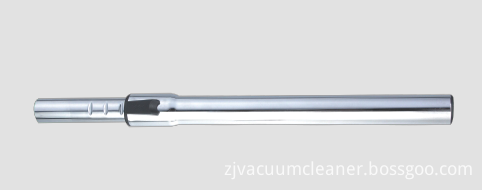
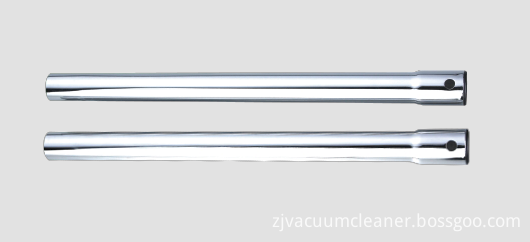
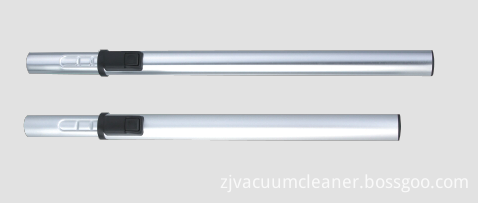
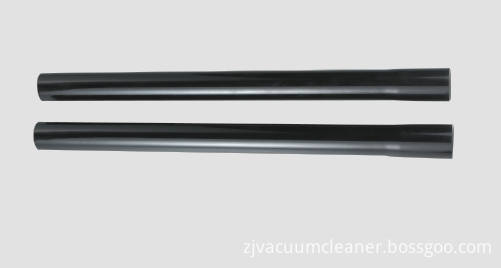
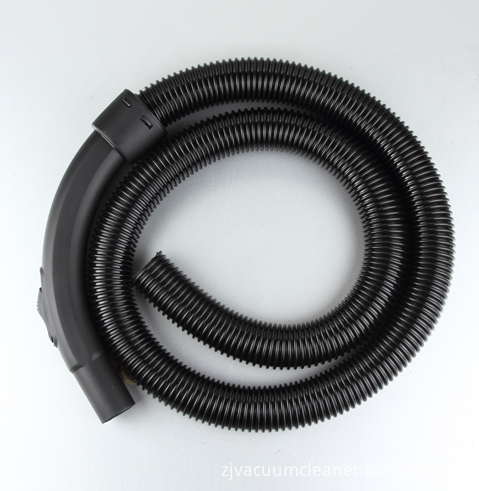
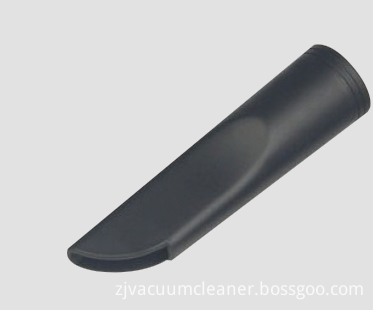
Extension Tube, Hose Assembly, Telescopic Tube, Insert Tubes
Ningbo ChinaClean Household Appliances Manufacture Co., Ltd. , http://www.chinaclean-elec.com